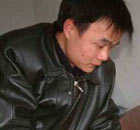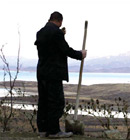Asia-Pacific
Japan warning to China 'has domestic cause'
By Cheng Guangjin and Liu Qi (China Daily)
Updated: 2010-01-20 07:25
 |
Large Medium Small |
Ruling party's declining support forces govt to divert discontent
Domestic political uncertainty in Japan caused the country's foreign minister to threaten on Sunday that "action" would be taken against China over Chinese exploration of the Chunxiao oil and gas fields in the East China Sea, Chinese experts said.
Katsuya Okada said during a meeting with his Chinese counterpart Yang Jiechi on Sunday in Tokyo that if China violates an agreement signed in 2008 governing the development of oil and gas field in East China Sea, "Japan will have to take certain action", the AFP reported.
In response, Yang emphasized that "the sovereign rights of Chunxiao oil and gas field belong to China", according to Foreign Ministry spokesman Ma Zhaoxu.
"Under the 2008 agreement on the East China Sea issue between the two countries, the Chunxiao oil and gas fields can be cooperatively developed, which means that China's sovereignty over Chunxiao is indisputable, but China still welcomes Japan to participate in the development," said Yang Bojiang, director of Japanese Studies at the China Institute of Contemporary International Relations.
The current government, led by Yukio Hatoyama, wants to divert the public attention to the diplomatic dispute with China from a funding scandal involving the DPJ's secretary-general, Ichrio Ozawa, Yang Bojiang said.
Ozawa has come under fire after prosecutors arrested three of his current and former aides on suspicion of improper reporting of political donations. Ozawa denies any intentional wrongdoing.
Opposition parties have threatened to boycott parliamentary debate on an extra budget to prop up the economy if the ruling Democratic Party dodges questions about the scandal.
"The DPJ has very weak social support, and is nervous about losing the upcoming parliamentary election to Liberal Democratic Party (LDP), which has far more supporters," he said.
Gao Hong, a Japan studies expert at the Chinese Academy of Social Sciences, agreed. "The Hatoyama cabinet hopes to use this to increase its domestic support," he said.
Just 41.5 percent of voters approve of Hatoyama's cabinet, while 44.1 percent disapprove, Reuters reported, citing a survey by the Kyodo news agency. That is the first time more people have disapproved than approved since Hatoyama took office.
Surveys by the Asahi Shimbun and Yomiuri newspapers also showed voter support for Hatoyama's government has dropped to 42 and 45 percent, respectively, roughly equal to its disapproval ratings.
However, the DPJ's move on the Chunxiao oil and gas fields will only please some voters in a short term, Yang said.
"The major reason for Hatoyama's declining popularity lies in his hesitation in pressing ahead with reforms and policies," Yang said.










